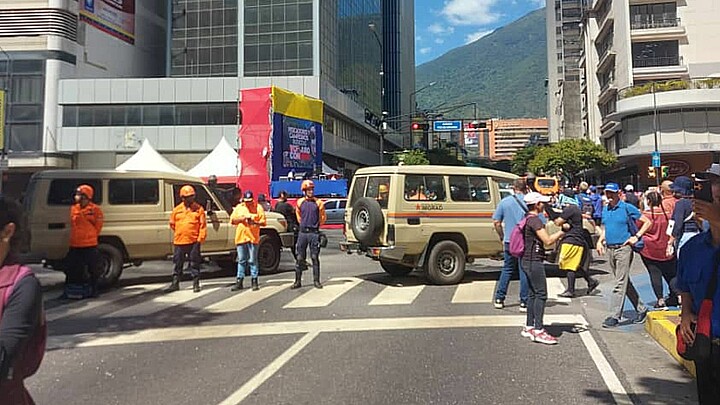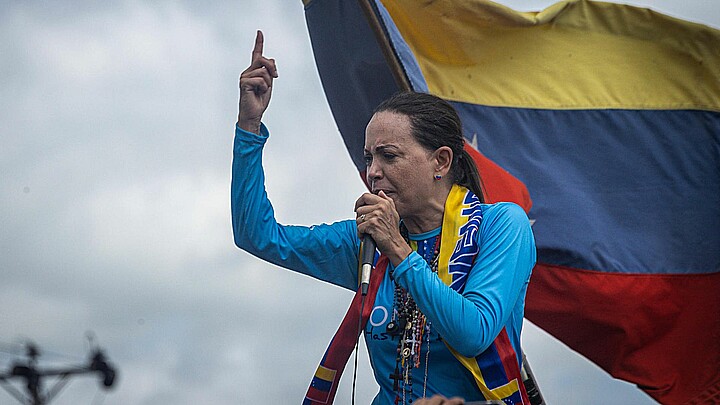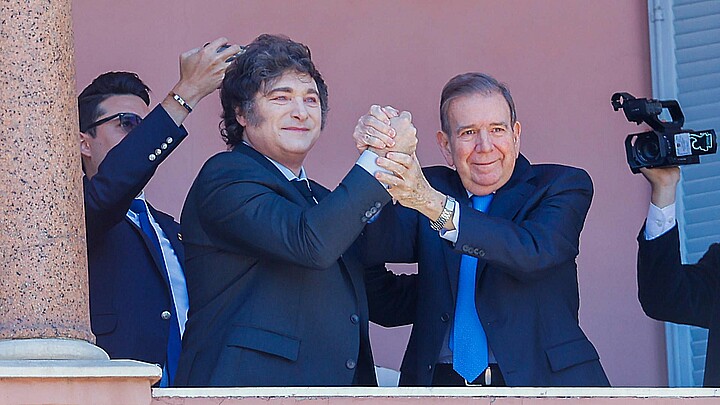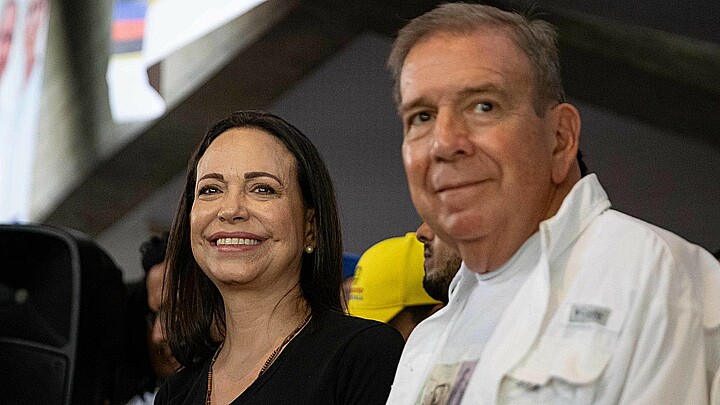Politics
Maduro blocks millions of out of country Venezuelans from voting in upcoming elections
The regime faces a new wave of criticism regarding its position concerning the right to vote of out of country Venezuelans

March 28, 2024 5:03pm
Updated: March 29, 2024 8:35am
Venezuelans abroad have reported that their consulates are preventing them from registering to vote in the upcoming July 28 presidential elections by failing to install the necessary voting guidelines or machines at foreign based consulates.
The complaint has been echoed at several consulates in Latin America and Europe, where voters and activists continue to denounce maneuvers to prevent an estimated 5.2 million voter registrations.
Jesús Delgado, a member of the NGO, “Electoral Transparency” an Argentina based organization that monitors electoral processes in Latin America, believes that the obstacles are “systematic and respond to the fact that the National Electoral Council (CNE) has not sent any guidelines” to the consulates.
For its part, the dictatorship in Venezuela attributes the problem of registrations abroad to international sanctions, claiming that they delay the process and make it difficult to send the voting machines.
According to the Interagency Coordination Platform for Refugees and Migrants (R4V), some 7.72 million Venezuelans have left their country in recent years, a figure that the regime denies and estimates at only “two million,” of which, “almost a million have returned.”
The electoral roll was last updated in 2018, when there were only 107,000 Venezuelans registered from abroad, of which about 40,000 were registered in the United States, where they could not exercise their right to vote due to the breaking of diplomatic relations between both countries.
Several countries have expressed concern about what happened in Venezuela during the electoral process, including Brazil and Colombia, which previously tolerated Venezuelan dictator Nicolás Maduro.
Brasilia and Bogotá pointed out that holding a fair and free election on July 28 would be an opportunity to “strengthen” democracy in Venezuela, as was previously agreed with the signing of the Barbados Agreement in October.











